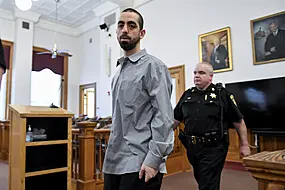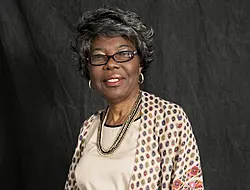Child killer Jon Venables has lost a Parole Board bid to be freed from jail.
The 41-year-old tortured and murdered two-year-old James Bulger in 1993.
The Parole Board said on Wednesday: “After considering the circumstances of his offending, the progress made while in custody and on licence, and the evidence presented in the dossier, the panel was not satisfied that release at this point would be safe for the protection of the public.
“It noted the risks as set out above, doubted Mr Venables’ ability to be open and honest with professionals, and concluded that there remained a need for him to address outstanding levels of risk, and to develop his relationship with his probation officer.”
The decision came after a series of delays and following a hearing held behind closed doors last month when Venables asked to be released.
He was jailed alongside Robert Thompson after the pair of 10-year-olds snatched James from a shopping centre in Bootle, Merseyside, in February 1993.

Venables was released on licence in July 2001 and recalled to prison in February 2010 after indecent images of children were found on his computer.
He was once again freed in August 2013 and then called back in November 2017 for the same offence, with parole judges last considering his case in September 2020.
Justice Secretary Alex Chalk said: “James Bulger’s barbaric murder was a crime that shocked the nation and I welcome the Parole Board’s decision to keep his killer behind bars.
“Public protection is our number one priority, which is why I opposed Jon Venables’ release and this government is reforming the parole system to introduce a stronger ministerial check on the release of the most dangerous offenders.”
There is a long-standing legal order in place to protect the identities of Venables and Thompson because of their young age when they committed the murder.
This meant that Parole Board chairperson Caroline Corby chose not to hold his parole hearing in public, and that James’s family were not able to attend.
Venables refused to give evidence during the latest hearing because permission had been granted for a lawyer representing his victim’s relatives to listen to the proceedings.
He was “not comfortable discussing some aspects of the case with the family representative listening” and instead asked the panel to consider his review based solely on written evidence, according to parole papers.
Venables will be eligible for another parole review in around two-years’ time.







